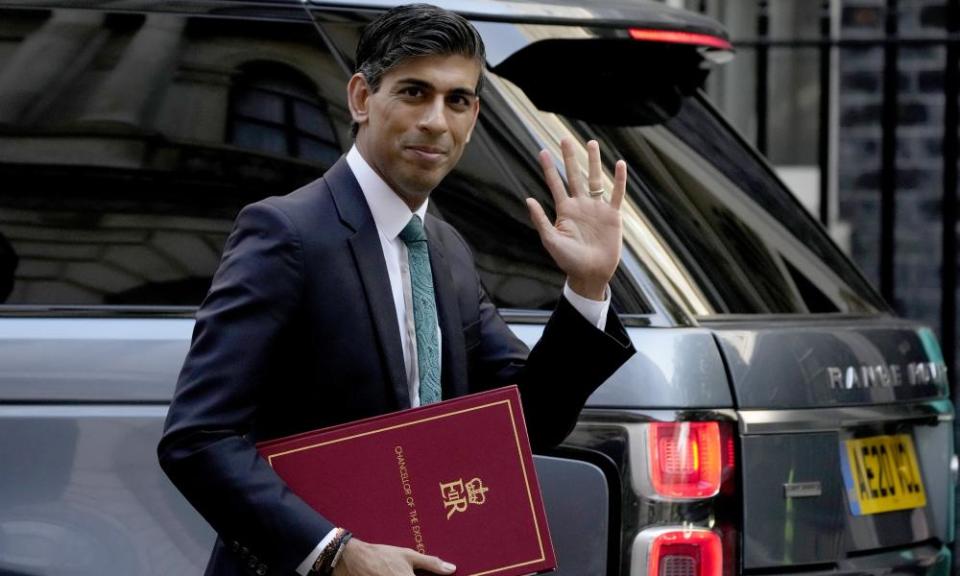Unions and MPs of all parties urge Sunak to boost household incomes

Unions and MPs from all parties urged the chancellor to go further in the budget to boost household incomes after official pay data showed an increase this year only returned average wages to 2009 levels.
Figures from the Office for National Statistics (ONS) showed that in the 12 years from 2009 to 2021, the inflation-adjusted level of median pay fell and then recovered to leave workers no better off.
This compares with an increase of 24% in real terms between 1997 and 2009.
With inflation expected to rise to 5% in the coming months and most households squeezed by higher taxes from next April, critics said Rishi Sunak needed to make more government funds available to support people hit hard by the pandemic.
The TUC general secretary, Frances O’Grady, said the recent £20 a week cut to universal credit had made the situation worse.
“The last 12 years have been the worst period for wage growth since Napoleonic times,” she said. “We need a proper plan from the chancellor tomorrow to get pay rising across the economy.”
Liberal Democrat Treasury spokesperson Christine Jardine said: “This winter looks set to be one of the toughest in recent times with energy and fuel costs sky-rocketing. The chancellor’s toxic combination of tax hikes and welfare cuts is the last thing families need.”
The ONS said its annual survey of hours and earnings (Ashe) showed that after median weekly pay for people in full-time employment flatlined in the year to April 2020, it rose in the following 12 months to £611, up 4.3%.
Adjusting for inflation, which remained relatively low over the period, wages increased by 2.6% in real terms between 2020 and 2021.
However, if rising prices in the run-up to the Christmas shopping period more than offset wage increases that the ONS says are running at 3.5% to 4%, another period of flat or falling wages is possible in the year ahead.
Robert Wood, a UK economist at Bank of America, said household incomes could also be squeezed next year by interest rate hikes by the Bank of England, which would push up the cost of variable and tracker mortgages.
“UK consumers face a triple whammy in 2022 of rate hikes, tax hikes and high inflation. We expect real household income to fall 1% next year,” he said.
Rishi Sunak has put in place a series of measures that he says will protect workers’ living standards and help them navigate extra costs from rising energy bills and tax increases.
Over the weekend he announced a rise in the minimum wage for workers aged 23 or older. A pay freeze in the public sector affecting workers outside the health service will also come to an end, allowing pay review bodies covering teachers, civil servants and social workers to boost earnings.
The Unison general secretary, Christina McAnea, said a decision to lift the pay freeze for more than 4 million public sector workers was “no cause for celebration”.
“Unless extra money finds its way to individual government departments, the freeze will continue. Any pay rise less than the rate of inflation is, effectively, a pay cut,” she said.
“Ministers must also find the cash to give NHS workers the proper pay award they’ve more than earned.”
The Ashe survey found that the biggest boost to wages in the year to April 2021 came from those who lost out during the previous year – younger workers, men and the low-paid.

 Yahoo Finance
Yahoo Finance 